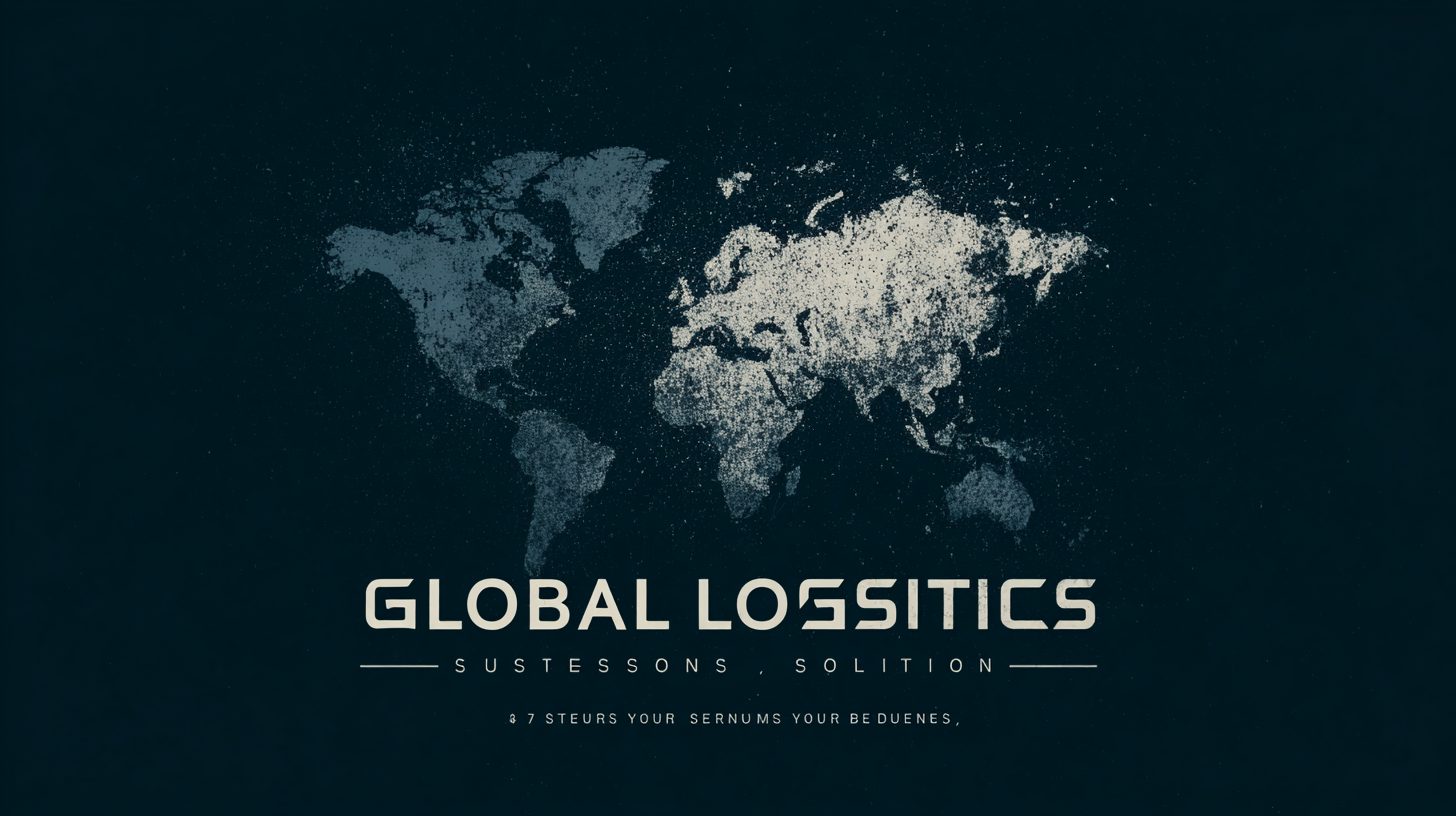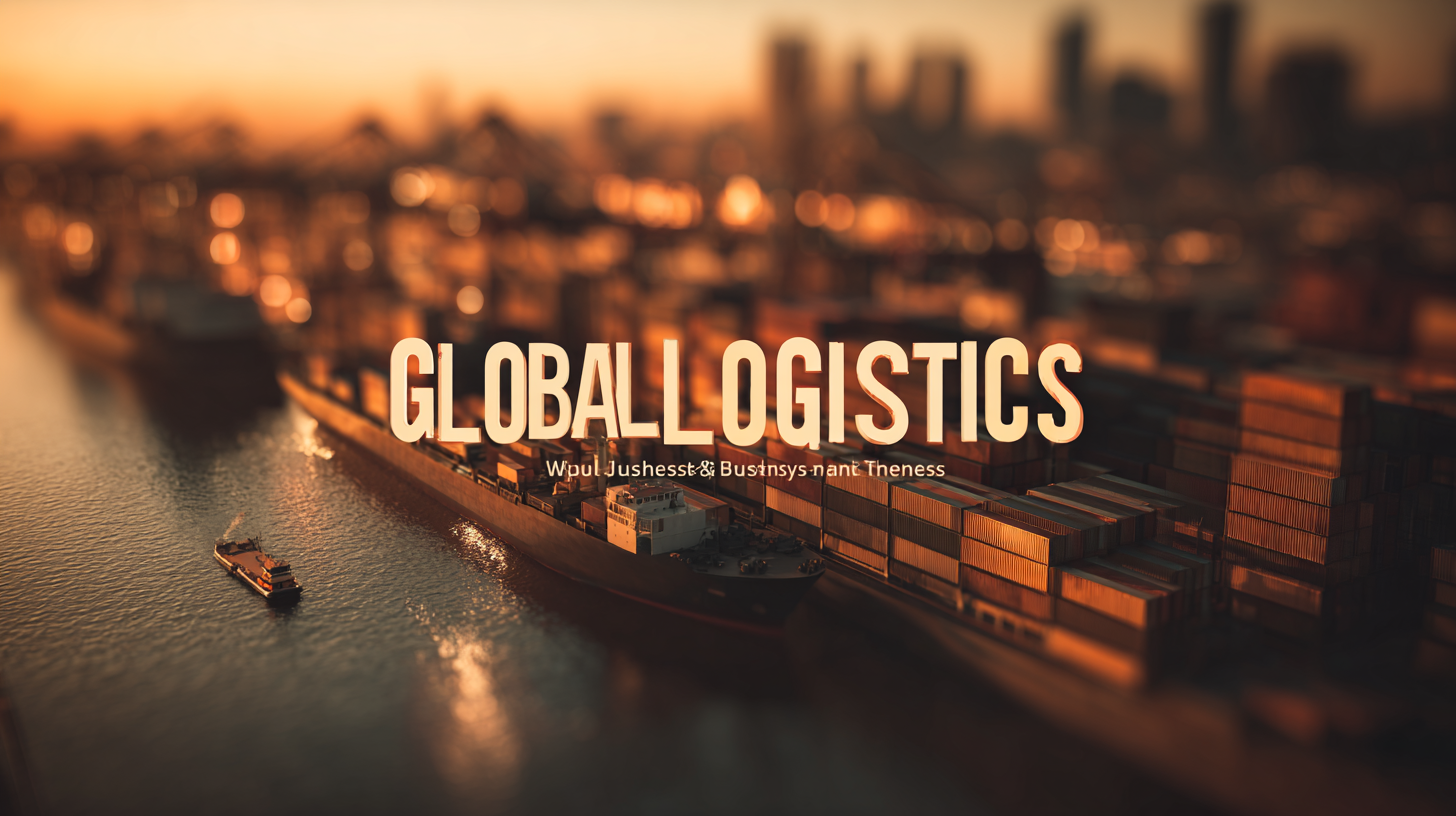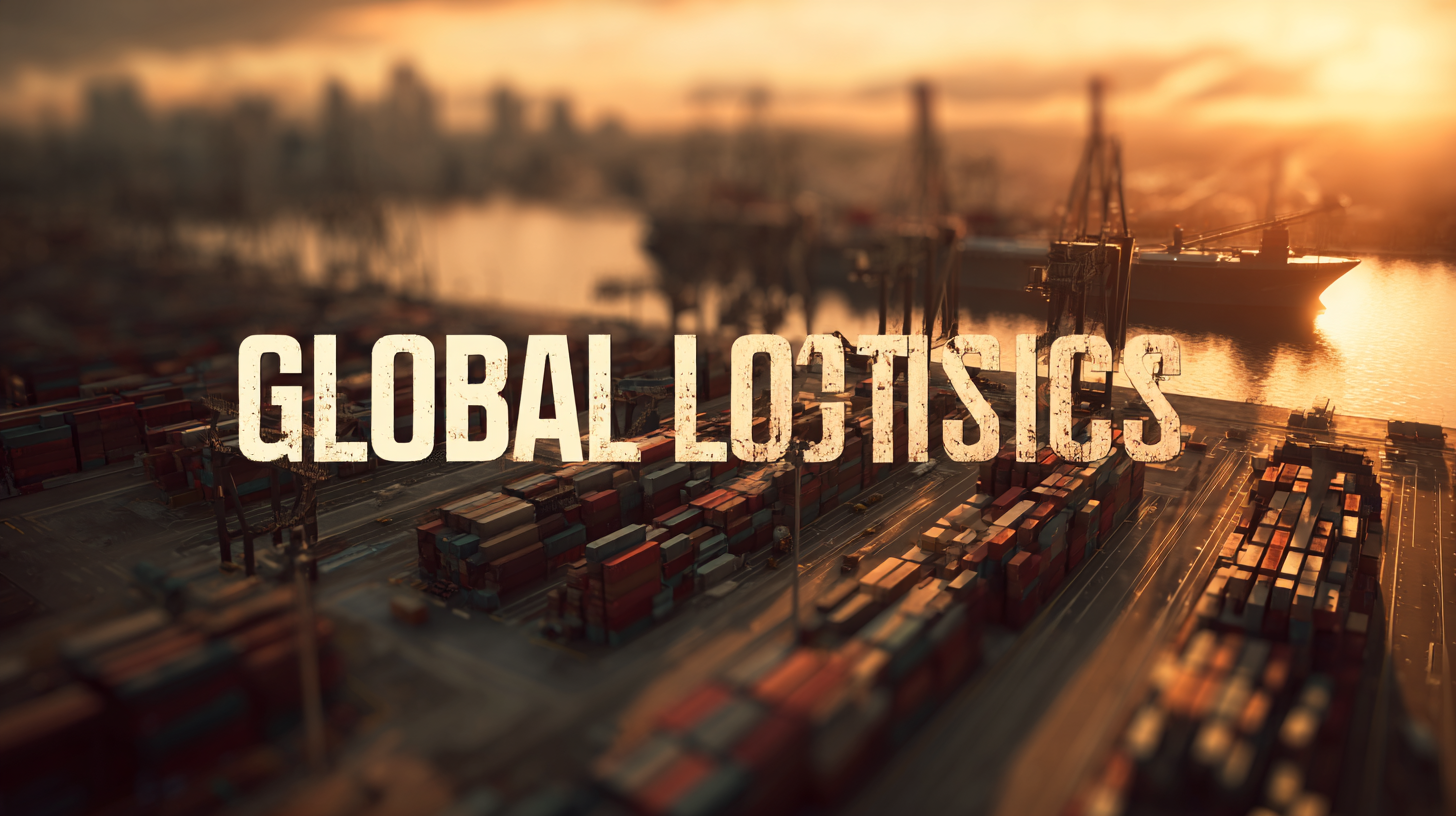In today's interconnected world, global logistics has become a cornerstone for businesses aiming to streamline their operations and enhance efficiency. According to recent industry reports, the global logistics market was valued at approximately $9.6 trillion in 2021 and is projected to grow at a compound annual growth rate (CAGR) of 4.7% between 2022 and 2028. This growth is driven by the increasing demand for seamless supply chain management and the rise of e-commerce, which calls for robust logistics solutions.

With numerous options available, selecting the best global logistics solution tailored to specific business needs is crucial for maintaining a competitive edge. In this blog, we will compare the seven best global logistics solutions that can empower businesses to optimize their supply chains, reduce costs, and improve customer satisfaction, ultimately driving growth in an ever-evolving market landscape.
Innovative technologies are reshaping the landscape of global logistics, driving efficiency and reducing operational costs for businesses worldwide. With the rise of automation and data analytics, logistics companies can streamline their processes, improve decision-making, and enhance customer service. For instance, the integration of artificial intelligence (AI) allows for predictive analytics, enabling companies to foresee demand fluctuations and optimize their supply chains accordingly. This ensures timely deliveries and reduces the risk of excess inventory, ultimately boosting profitability.
Moreover, the adoption of blockchain technology is revolutionizing transparency and security in logistics. By providing a decentralized ledger of transactions, blockchain enhances traceability and accountability throughout the supply chain. This technology reduces the likelihood of fraud and errors while facilitating smoother transactions between stakeholders. Furthermore, the implementation of Internet of Things (IoT) devices allows for real-time tracking of shipments, providing businesses with critical insights into their logistics operations. These advancements empower businesses to respond swiftly to challenges and adapt their strategies for improved performance in an increasingly competitive environment.

In the realm of international shipping, quality assurance plays a pivotal role in ensuring that goods reach their destinations safely and efficiently. As global trade increases, the need for robust quality control mechanisms becomes essential. This is not just applicable to the logistics industry but touches on various sectors, including healthcare and manufacturing, which rely on precise standards to enhance operational effectiveness. For instance, the World Health Organization emphasizes the significance of quality in healthcare services, which parallels the need for quality assurance in logistics, ensuring that shipments do not contribute to quality degradation or risk to health.
Moreover, the impact of global warming is reshaping shipping routes, highlighting the urgency of maintaining high standards in logistics. As climate change makes certain areas, like Greenland and the Panama Canal, more critical to trade routes, the pressure on logistics solutions intensifies. Companies must integrate quality assurance practices that account for environmental factors and operational resilience. This includes evaluating efficiency in response to climate shifts and optimizing resource use, ensuring that global logistics remain sustainable and reliable while meeting diverse business needs.
When selecting a global logistics partner, businesses should consider several key factors that can significantly impact operational efficiency and customer satisfaction. One of the foremost considerations is the logistics provider's ability to adapt to the fast-evolving landscape of cross-border e-commerce. As the demand for timely delivery increases, especially in international markets, companies must partner with logistics providers that can establish and manage overseas warehouses, ensuring rapid order fulfillment and enhanced customer experience. The strategic placement of these warehouses is crucial for brands looking to penetrate new markets effectively.
Another important factor to evaluate is the technological capabilities of the logistics provider. In an era where digital logistics is on the rise, integration of advanced technologies such as decision support tools and automated systems is vital. These innovations not only streamline operations but also provide businesses with valuable insights that can aid in decision-making. A logistics partner that prioritizes digital transformation can significantly increase operational efficiency while maintaining stable service levels, allowing businesses to scale rapidly in a competitive global market.
In today's fast-paced global market, streamlining supply chains is essential for Chinese manufacturers aiming to enhance efficiency and reduce costs. According to a report by McKinsey & Company, companies can realize up to a 30% reduction in operational costs through optimizing supply chain processes. A key strategy involves leveraging advanced technologies such as artificial intelligence and machine learning, which can provide predictive analytics to better forecast demand and manage inventory levels. This helps manufacturers adjust their production schedules proactively, minimizing waste and maximizing productivity.

Furthermore, integrating logistics solutions that facilitate real-time tracking and data sharing can significantly improve supply chain transparency. A study by the Institute for Supply Chain Management indicates that organizations with high visibility across their supply chains experience a 15% increase in customer satisfaction. By adopting innovative global logistics solutions, Chinese manufacturers can not only ensure timely delivery of products but also enhance collaboration with suppliers and distributors. This strategic alignment is crucial for maintaining competitiveness in the increasingly interconnected global marketplace.
Navigating trade regulations is a critical aspect of ensuring smooth cross-border transactions. As global trade continues to expand, businesses face increasingly complex compliance requirements. According to a report by the World Bank, the cost of international logistics for small and medium-sized enterprises can reach up to 22% of the total shipment value. Therefore, understanding the regulatory landscape is imperative for minimizing risks and enhancing efficiency.
One of the key challenges in cross-border transactions is the varying regulations across countries. The International Chamber of Commerce notes that only 37% of businesses are fully compliant with global trade regulations. To mitigate this, companies should invest in robust logistics solutions that offer compliance assistance, such as automated customs documentation and real-time regulatory updates. Embracing such technologies can significantly reduce delays and penalties associated with non-compliance, ultimately facilitating smoother operations and improved customer satisfaction.
Furthermore, leveraging the expertise of global logistics providers can streamline the complexities of international shipping. In a survey conducted by Logistics Management, 60% of logistics professionals indicated that working with experienced logistics partners improved their ability to navigate trade regulations. By integrating best practices in global logistics, businesses can better position themselves in the competitive landscape and navigate the intricacies of international trade with confidence.
| Logistics Solution | Key Features | Regions Covered | Average Transit Time | Cost Efficiency |
|---|---|---|---|---|
| Solution A | Real-time Tracking, 24/7 Support | North America, Europe, Asia | 3-5 Days | High |
| Solution B | Customs Clearance, Warehouse Management | Europe, Asia | 5-7 Days | Medium |
| Solution C | End-to-End Visibility, Flexible Solutions | Global | 1-2 Weeks | Variable |
| Solution D | Integrated Supply Chain, AI-driven | North America, Latin America | 4-6 Days | High |
| Solution E | Freight Forwarding, Double-Check Protocols | Europe, Asia, North America | 7-10 Days | Medium |
| Solution F | Agile Delivery, Cloud-Based Tracking | Asia, Australia | 5-8 Days | Low |
| Solution G | Blockchain for Security, Analytics | Global | 3-4 Days | High |






